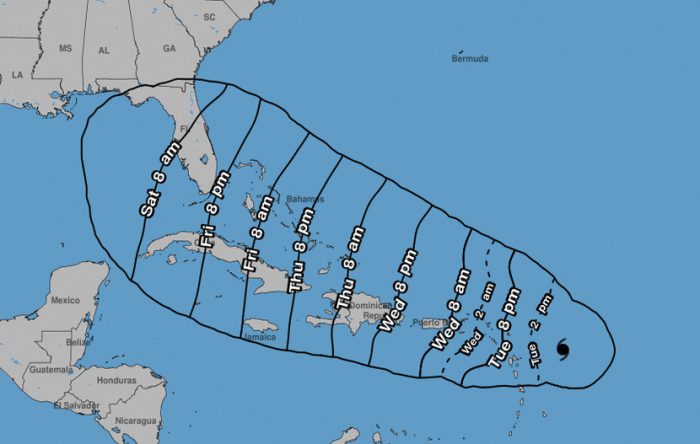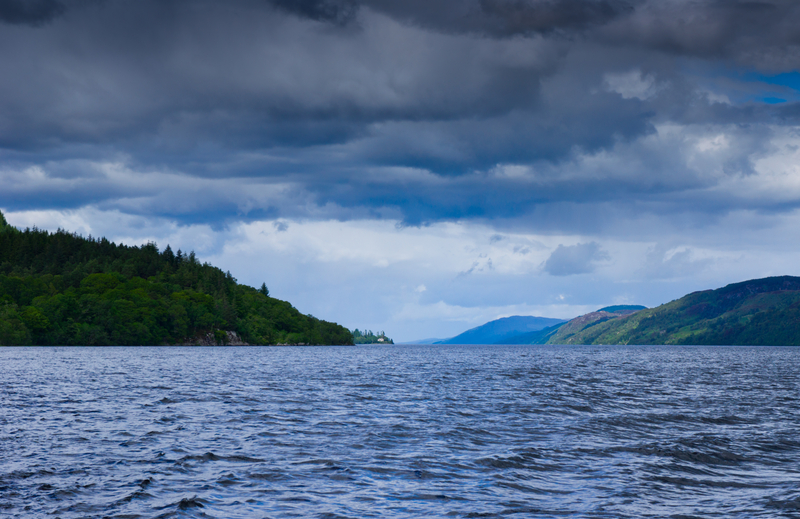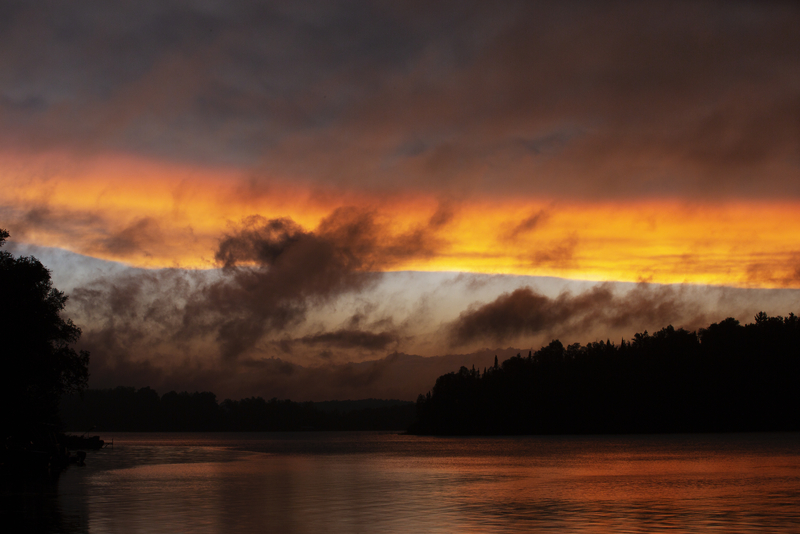When Hurricane Harvey hit Texas on August 25, it brought powerful winds and record rainfall. Much of the Texan coastline was flooded, especially the city of Houston (which is the fourth largest city in the United States).
Now another massive hurricane, called Irma, has developed in the Atlantic Ocean. Right now, it is a very powerful storm, rated as a Category 5 hurricane (we explain the Saffir-Simpson scale for hurricanes here). It has winds at around 280 km/h (175 mph), which is very strong even for Category 5. Irma is excepted to begin moving through the Caribbean tomorrow, with a high chance of reaching Florida and other parts of the eastern United States around Saturday.
Preparations already under way
Shelves in a Guadeloupe grocery store have been emptied of bottled water ahead of the coming hurricane. (Getty Embed)
This means that people in Caribbean island nations like Puerto Rico, Antigua and Barbuda, Guadeloupe, St. Kitts, Anguilla, and many more are rushing to reinforce shelters, purchase power generators (in case electricity is knocked out in their area) and grab supplies like food and drinking water. Floods contaminate public water supplies, which makes bottled drinking water especially precious.
And since these places could start seeing Irma's effects as soon as Tuesday evening or Wednesday, time is also precious. Though the hurricane will pass over these small islands relatively quickly, the storms are strong enough to cause a lot of damage in a short period of time.
What will it mean for the United States?
Much of Houston, Texas is still flooded after Hurricane Harvey. (Getty Embed)
With Houston still flooded, people in Florida are taking this threat very seriously. After all, Harvey caused extraordinary damage as a Category 4 storm (still exceptionally powerful). Irma is a 5 right now.
Florida Governor Rick Scott and U.S. President Trump have reassured citizens that they will get "the full resources of the federal government as Floridians prepare for Hurricane Irma." But still, with all that happened in Texas, Florida must be under a full evacuation, right?
Not yet.
Tough to predict
Hurricane Hermine damaged this road last September. Hermine was a much weaker storm (Category 1) than Irma is now. Even experts can't say for sure if Irma will hit Florida, though it looks likely. (Getty Embed)
This is what makes hurricane science so difficult. Experts use computers to make hurricane "models" that plot out the general path and strength of a storm. Though these models are relatively accurate (showing that a large storm is coming and is likely to hit a general area), predicting the exact places that will be hardest hit, and how hard they will be hit, is very challenging.
Hurricanes gain their power from the open water. So the islands that Irma will pass over could sap some of its strength by the time it hits Florida. In fact, the hurricane might not even reach the United States. Storms can change course unexpectedly in ways that shock even top experts.
In the end, the old saying of "hope for the best and prepare for the worst" is how people are getting ready for Irma. Whether it's a Caribbean country like Cuba or the state of Florida, a hurricane is part of life near the ocean. Here's hoping that their experience pays off and they weather Irma safely.
 This map from the National Hurricane Center shows the likely path of Hurricane Irma and the time it will reach certain areas. Much of the Caribbean and Florida are on high alert. (NOAA/NHC)
This map from the National Hurricane Center shows the likely path of Hurricane Irma and the time it will reach certain areas. Much of the Caribbean and Florida are on high alert. (NOAA/NHC)









